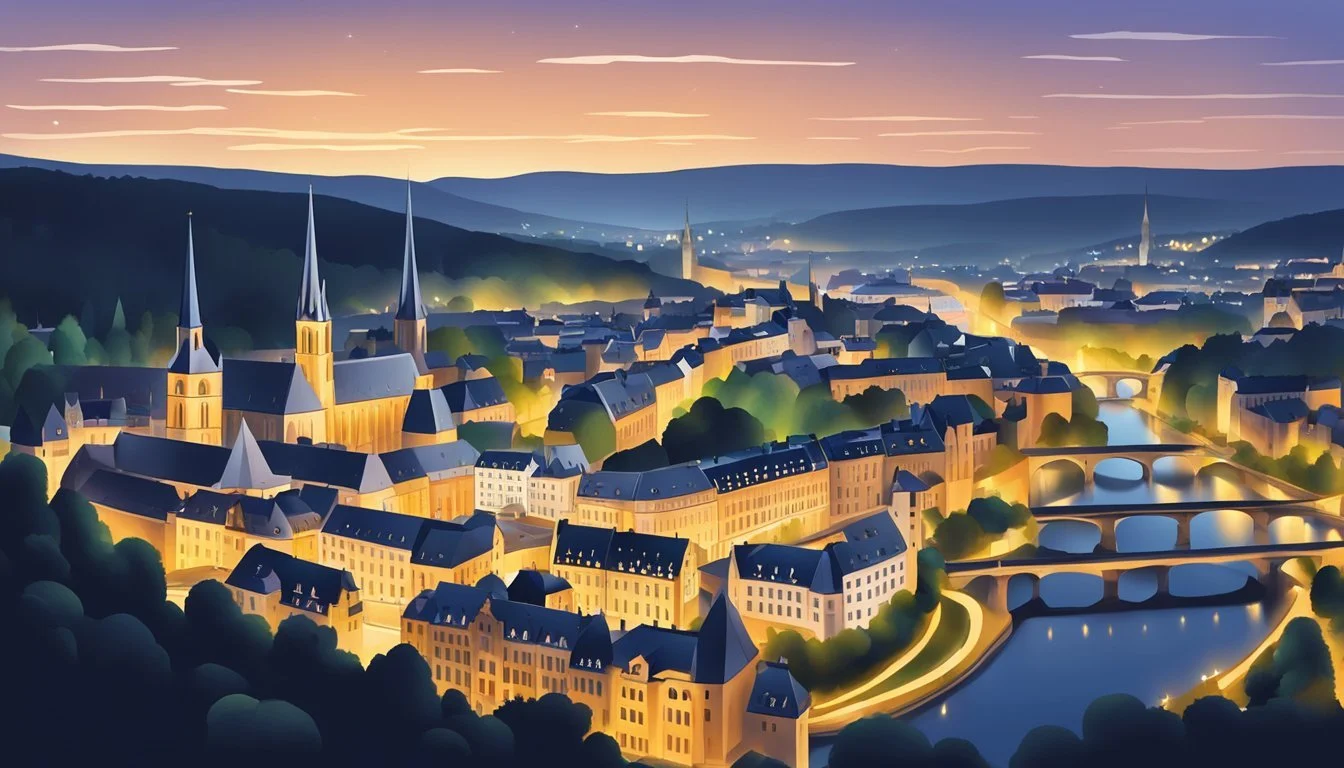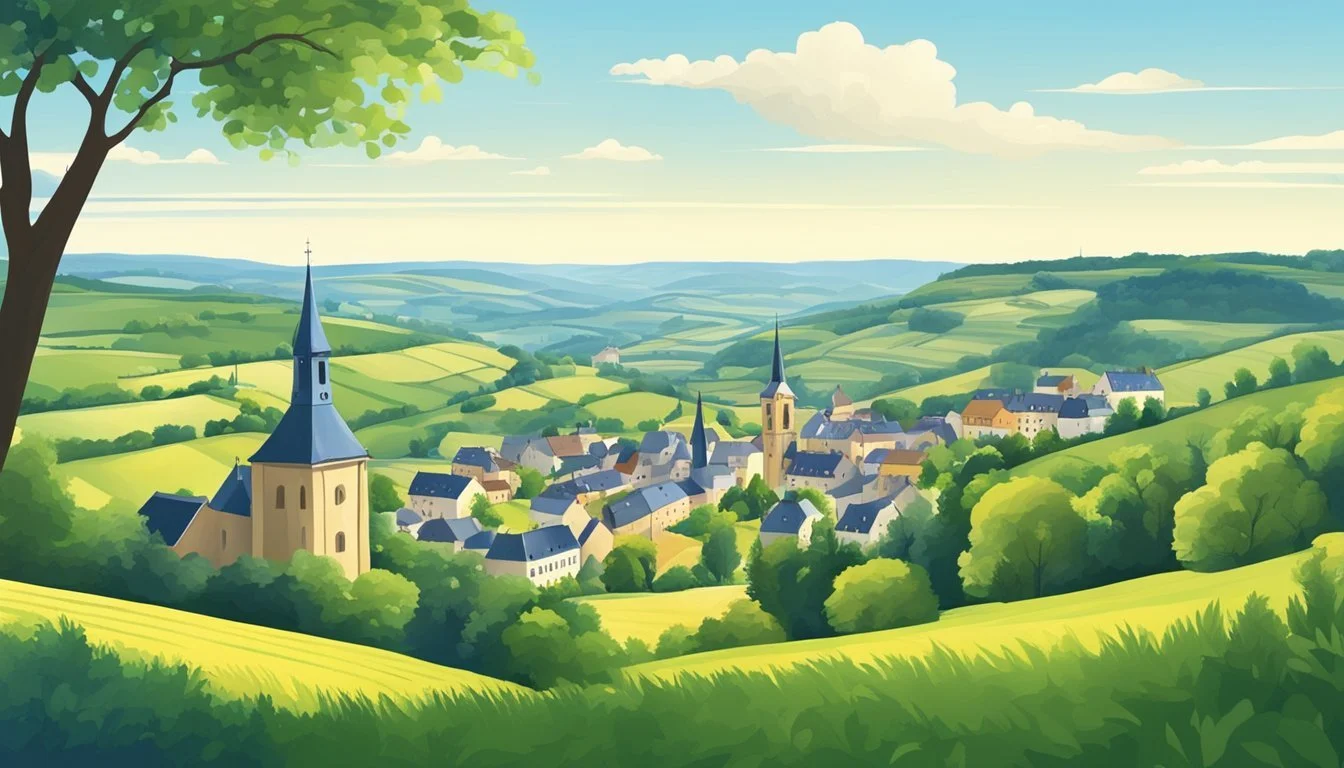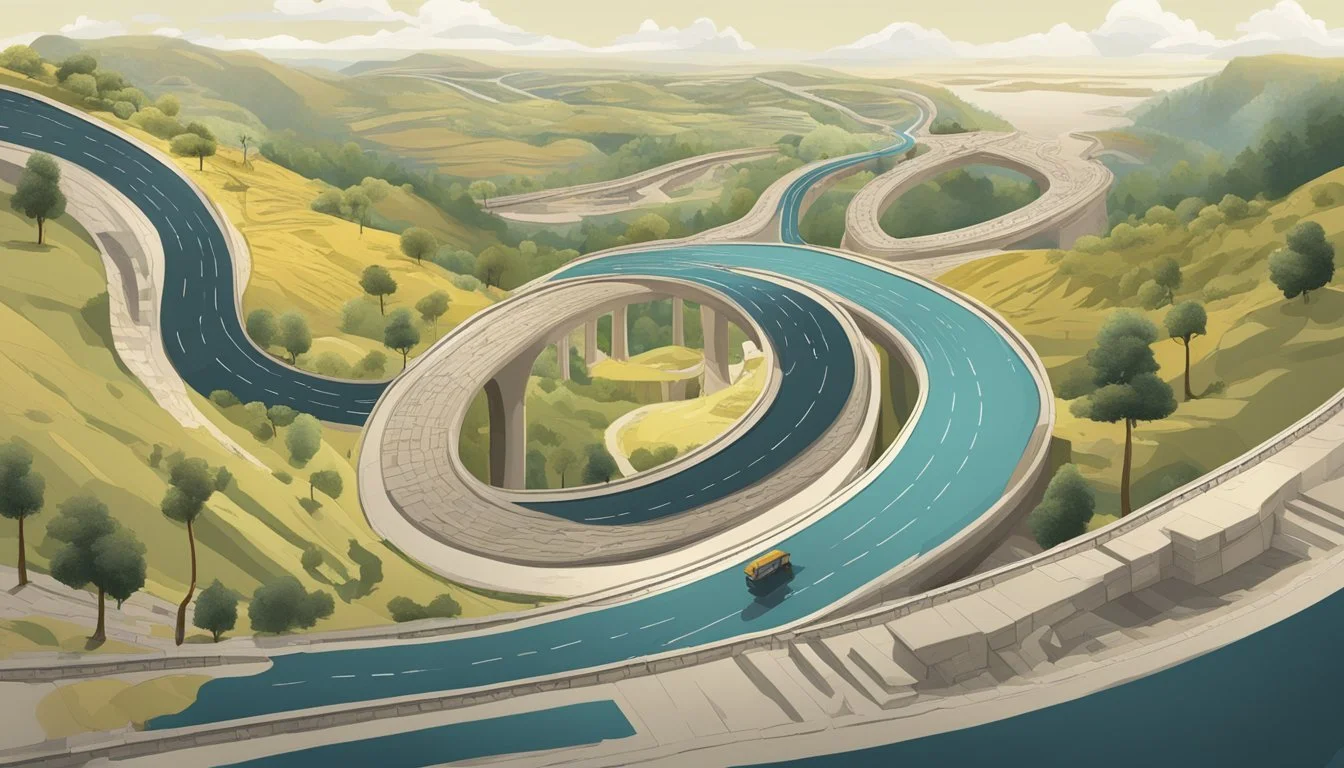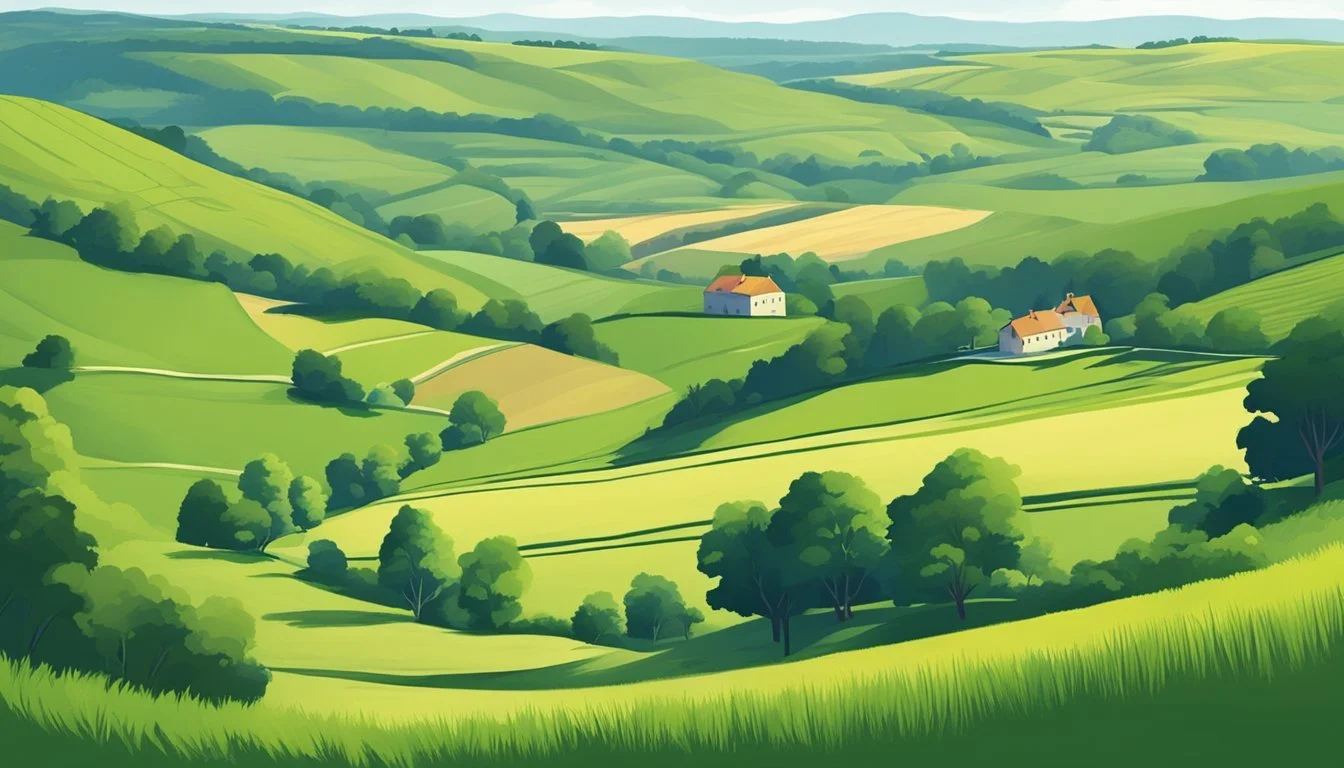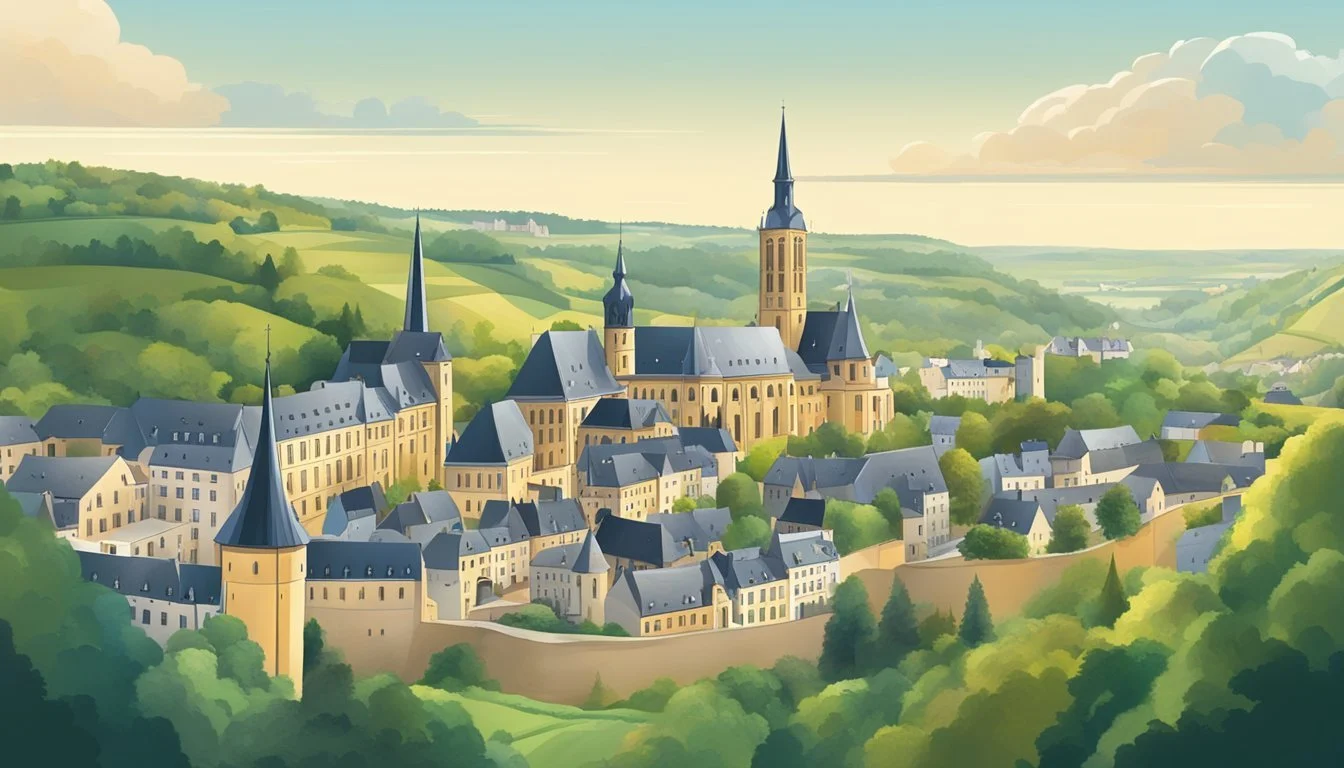7 Insightful Documentaries on Luxembourg
Exploring the Heart of Europe
Luxembourg, a small but prosperous nation nestled in the heart of Europe, has captivated filmmakers and audiences alike with its unique blend of history, culture, and modern prosperity. Documentaries about this tiny grand duchy offer viewers a window into its picturesque landscapes, complex social dynamics, and outsized global influence.
These films provide an invaluable lens through which to explore Luxembourg's multifaceted identity, from its role as a financial powerhouse to its efforts in sustainability and social welfare. By examining the country's triumphs and challenges, documentaries serve as powerful tools for understanding Luxembourg's place in the world and its vision for the future.
1) "Let's Make Money" directed by Erwin Wagenhofer
"Let's Make Money" is a 2008 documentary film directed by Austrian filmmaker Erwin Wagenhofer. The film explores the global financial system and its impact on various countries and economies.
Wagenhofer's documentary takes viewers on a journey through the worldwide finance system, tracking the flow of money across borders. It examines the consequences of financial decisions made in wealthy nations on developing countries.
The film spans multiple locations, including Burkina Faso and Jersey, to illustrate the disparities in global wealth distribution. It sheds light on the economic logic behind international finance and its effects on different populations.
"Let's Make Money" runs for approximately 110 minutes and features dialogue in English, French, German, Spanish, and Tamil with English subtitles. The documentary is suitable for audiences aged 15 and above.
Wagenhofer's work follows his previous documentary "We Feed the World," which focused on food production. "Let's Make Money" continues his exploration of global economic systems and their far-reaching implications.
The film provides insights into the complexities of international finance, offering viewers a deeper understanding of how money moves and impacts societies worldwide.
2) "Luxembourg, USA" directed by Peter D. Hutchison
"Luxembourg, USA" offers a unique exploration of cultural connections between the small European nation and its American namesakes. Directed by Peter D. Hutchison, this documentary sheds light on the little-known Luxembourg communities in the United States.
The film takes viewers on a journey through towns like Luxembourg, Wisconsin, and New Luxembourg, Minnesota. It examines how these communities have preserved their Luxembourg heritage over generations.
Hutchison interviews descendants of Luxembourg immigrants, capturing their stories and traditions. The documentary showcases local festivals, cuisine, and customs that reflect the immigrants' origins.
The film also draws parallels between modern-day Luxembourg and its American counterparts. It highlights similarities in architecture, surnames, and even certain linguistic expressions.
"Luxembourg, USA" provides insight into the immigrant experience and the lasting impact of cultural heritage. The documentary serves as a testament to the enduring connections between Luxembourg and its diaspora in America.
3) "Demain (Tomorrow)" directed by Cyril Dion and Mélanie Laurent
"Demain (Tomorrow)" is a thought-provoking documentary released in 2015. Directed by journalist Cyril Dion and actress Mélanie Laurent, the film takes a unique approach to addressing global challenges.
Unlike many documentaries that focus on negative outcomes, "Demain" highlights potential solutions to pressing issues. The directors travel to various countries, showcasing innovative initiatives in agriculture, energy, economy, democracy, and education.
The film features interviews with experts and activists who are implementing positive changes in their communities. It explores sustainable practices and alternative models that could shape a more hopeful future.
"Demain" runs for 118 minutes and presents a mix of informative content and inspiring stories. The documentary aims to motivate viewers by demonstrating that individuals and small groups can make meaningful impacts.
While not specifically about Luxembourg, "Demain" offers insights relevant to global sustainability efforts. Its optimistic perspective and focus on practical solutions have resonated with audiences worldwide.
4) "The Glass Castle" featuring insights on Luxembourg architecture
"The Glass Castle" offers a unique perspective on Luxembourg's architectural landscape. This documentary explores the country's blend of historical and modern structures.
Viewers are taken on a journey through Luxembourg City's old town, showcasing its UNESCO World Heritage status. The film highlights the city's well-preserved fortifications and medieval buildings.
The documentary also examines Luxembourg's contemporary architecture. It features interviews with local architects discussing the country's innovative approach to urban design.
One segment focuses on the Kirchberg district, known for its modern office buildings and European Union institutions. The film analyzes how these structures reflect Luxembourg's role as a financial hub.
"The Glass Castle" pays special attention to sustainable architecture in Luxembourg. It showcases several eco-friendly buildings and discusses the country's commitment to green construction practices.
The documentary concludes with a look at Luxembourg's residential architecture, from traditional farmhouses to modern apartments. It provides insights into how the country's housing reflects its cultural values and economic prosperity.
5) "Route 66" with segments on Luxembourg's historical influence
"Route 66" explores Luxembourg's impact on global history through an unexpected lens. The documentary draws parallels between the iconic American highway and Luxembourg's own transformative role in Europe.
It highlights Luxembourg's strategic position at the crossroads of major European trade routes. This geographical advantage shaped the country's development and international connections over centuries.
The film examines Luxembourg's historical significance in European politics and economics. It touches on the country's role in the formation of the European Union and its status as a founding member.
"Route 66" also explores Luxembourg's contributions to industry and finance. The documentary showcases how the country's steel industry played a crucial part in European reconstruction after World War II.
The film draws attention to Luxembourg's evolution into a major financial center. It explains how this small nation became a hub for international banking and investment.
Throughout the documentary, interviews with historians and local experts provide insights into Luxembourg's past. These perspectives offer viewers a deeper understanding of the country's historical influence on Europe and beyond.
6) "Luxembourg: Rooted in Peace" directed by Greg Reitman
"Luxembourg: Rooted in Peace" explores the small European nation's commitment to peace and diplomacy. Directed by Greg Reitman, this documentary sheds light on Luxembourg's unique position in international relations.
The film examines Luxembourg's role as a founding member of the European Union and its contributions to global peacekeeping efforts. Reitman interviews local officials, diplomats, and citizens to provide diverse perspectives on the country's peaceful ethos.
Viewers gain insights into Luxembourg's historical neutrality and how it has shaped the nation's modern identity. The documentary showcases the country's involvement in various international organizations and its efforts to promote dialogue between nations.
Reitman's work highlights Luxembourg's investments in sustainable development and social cohesion as key factors in maintaining peace. The film also explores the country's multicultural society and how it fosters understanding among diverse communities.
Through stunning visuals and thoughtful interviews, "Luxembourg: Rooted in Peace" offers a compelling portrait of a nation dedicated to harmony and cooperation on the global stage.
7) "Mission: Grand-Duchy" showcasing Luxembourg's role in global finance
"Mission: Grand-Duchy" offers a compelling look into Luxembourg's position as a major financial center. The documentary explores the country's rise to prominence in the banking sector.
Viewers gain insight into Luxembourg's favorable tax policies and regulatory environment. These factors have attracted numerous international corporations and financial institutions to establish operations in the small nation.
The film examines Luxembourg's role in the European Union's financial landscape. It highlights the country's expertise in investment funds and cross-border financial services.
Interviews with key figures in Luxembourg's financial industry provide valuable perspectives. Bankers, regulators, and government officials share their views on the country's economic strategy.
The documentary also addresses challenges faced by Luxembourg's financial sector. It discusses efforts to maintain transparency and comply with international standards.
"Mission: Grand-Duchy" presents a balanced view of Luxembourg's financial ecosystem. It showcases the country's strengths while acknowledging the complexities of its role in global finance.
Luxembourg: A Brief Historical Overview
Luxembourg's history is marked by periods of foreign rule, strategic importance in European conflicts, and a journey towards independence and prosperity. The country's unique cultural heritage reflects influences from its larger neighbors while maintaining a distinct national identity.
Key Historical Milestones
Luxembourg's origins trace back to 963 CE when Count Siegfried acquired the fortress of Lucilinburhuc. In 1354, it was elevated to a duchy. The strategically located territory changed hands multiple times over centuries.
Spain controlled Luxembourg from 1556 to 1684. France briefly ruled from 1684 to 1697. The Austrian Habsburgs gained control in 1715.
Luxembourg gained independence in 1839 but remained in personal union with the Netherlands until 1890. It was occupied by Germany in both World Wars.
After World War II, Luxembourg became a founding member of NATO, the United Nations, and the European Union. The country transformed into a major financial center and one of the world's wealthiest nations.
Cultural Heritage and Influences
Luxembourg's culture blends Germanic and Romance influences. The national language, Luxembourgish, reflects this fusion. French and German are also official languages.
The country's architecture showcases its rich history. Medieval castles dot the landscape, while the capital features a mix of historic and modern buildings.
Luxembourg's cuisine combines French sophistication with German heartiness. Traditional dishes include Judd mat Gaardebounen (smoked pork with broad beans) and Bouneschlupp (green bean soup).
The arts flourish in Luxembourg, with numerous museums, theaters, and music venues. The country hosts international cultural events, fostering a vibrant artistic scene that draws inspiration from its multicultural heritage.
The Unique Geopolitical Landscape of Luxembourg
Luxembourg's geopolitical position is characterized by its central location in Europe and its outsized influence despite its small size. The country's multilingual culture and crucial role in the European Union shape its unique landscape.
Role in European Union
Luxembourg holds a pivotal position in the European Union. As a founding member, it has played a significant role in shaping EU policies and institutions. The country hosts several key EU institutions, including the European Court of Justice and the European Court of Auditors.
Luxembourg's financial sector is a major contributor to its economy and European financial markets. The country's stable political environment and strategic location make it an attractive base for international companies and financial institutions.
Luxembourg actively participates in EU decision-making processes, often punching above its weight in diplomatic circles. Its leaders have held influential positions within the EU, further enhancing the country's impact on European affairs.
Multilingualism and Its Impact
Luxembourg's linguistic diversity is a defining feature of its geopolitical landscape. The country officially recognizes three languages: Luxembourgish, French, and German.
This multilingual environment fosters strong cultural and economic ties with neighboring countries. It enables Luxembourg to act as a bridge between different European regions and facilitates international business and diplomacy.
The education system reflects this linguistic diversity, with students learning multiple languages from an early age. This multilingual skill set gives Luxembourg's workforce a competitive edge in the global market.
Luxembourg's language policies also contribute to its attractiveness as a hub for EU institutions and international organizations. The ability to operate seamlessly in multiple languages enhances the country's diplomatic capabilities and cultural influence.



